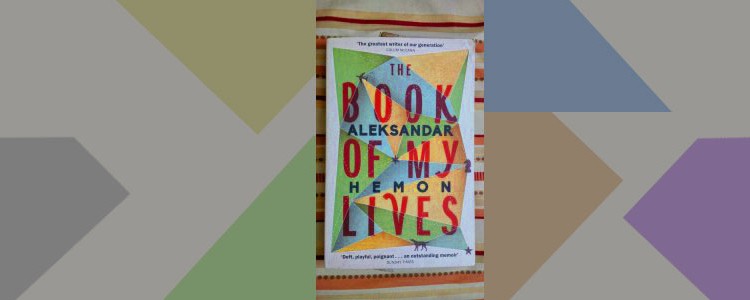Aleksander Hemon, “The Book of My Lives”
 The situation of immigration leads to a kind of self-othering as well. Displacement results in a tenuous relationship with the past, with the self that used to exist and operate in a different place, where the qualities that constituted us were in no need of negotiation. Immigration is an ontological crisis because you are forced to negotiate the conditions of your selfhood under perpetually changing existential circumstances. The displaced person strives for narrative stability– here is my story!–by way of systematic nostalgia. p.17
The situation of immigration leads to a kind of self-othering as well. Displacement results in a tenuous relationship with the past, with the self that used to exist and operate in a different place, where the qualities that constituted us were in no need of negotiation. Immigration is an ontological crisis because you are forced to negotiate the conditions of your selfhood under perpetually changing existential circumstances. The displaced person strives for narrative stability– here is my story!–by way of systematic nostalgia. p.17
I first came across Aleksander Hemon when I read his moving (and painful) essay, “The Aquarium”, in the New Yorker. ( http://www.newyorker.com/
Aleksander Hemon was born in Sarajevo and has lived in Chicago since 1992. The Book of My Lives is his fourth book, but first nonfiction. It follows A Question for Bruno ( 2000), Nowhere Man ( 2002), The Lazarus Project ( 2008) and Love and Obstacles. The Book of My Lives consists of 16 essays that were originally published elsewhere, such as The New Yorker, Granta, and McSweeney’s. There were revised and edited for the memoir. The essays vary from time spent in Sarajevo, being with the family, eating his grandmother’s homecooked broth, to participating in a Nazi-themed birthday party for his younger sister and disappearing off to the family cabin on the mountain called Jahorina, twenty miles from Sarajevo, for weeks on end to read in solitude and peace. On one such visit, the American Cultural Centre called him to say he had been invited to America for a month. While he was there, the war broke out in Sarajevo and he could not return for many years. The second half of the book consists of essays documenting/coming to grips with the new life/experiences — of being an immigrant in America.
The funny thing is that the need for collective self-legtimization fits snugly into the neoliberal fantasy of multiculturalism, which is nothing if not a dream of a lot of others living together, everybody happy to tolerate and learn. Differences are thus essentially required for the sense of belonging: as long as we know who we are and who we are not, we are as good as they are. In the multicultural world there are a lot of them, which out not to be a problem as long as they stay within their cultural confines, loyal to their roots. There is no hierarchy of cultures, except as measured by the level of tolerance, which, incidentally, keeps Western democracies high above everyone else. ….p.16
I read this book while travelling through Kashmir. In fact it took me a day to read, completely engrossed in it. It was a little surreal reading the essays while on holiday in Kashmir, especially those describing the conflict in Sarajevo, since the presence of the security forces, the freewheeling conversations with the locals about recovering from many years of conflict, or the tedious security checks at the airport are constant reminders of how fragile any society affected by conflict is. It is a memoir I would recommend strongly. A must.
Here are some links related to Aleksander Hemon that are worth exploring: Gary Shteyngart in conversation with Hemon http://chicagohumanities.org/
Aleksander Hemon interviews Teju Cole, Bomb http://bombmagazine.org/
An interview in the Salon http://www.salon.com/
Review in The Economist http://www.
Aleksander Hemon The Book of My Lives Picador, Oxford, 2013. Pb. pp. 250 Rs 450
11 Sept 2014

